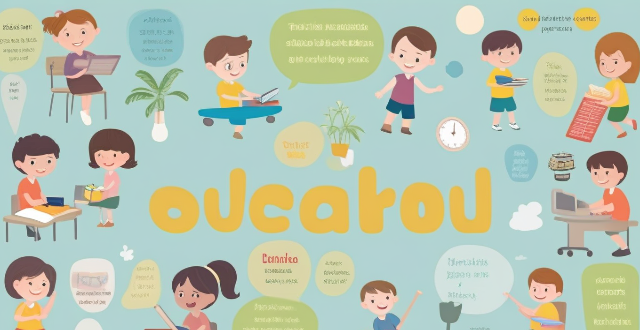Preschool education is crucial in preparing children for kindergarten and beyond. It helps them develop essential skills such as socialization, language development, cognitive development, emotional development, fine motor skills, and gross motor skills. These skills are crucial for success in kindergarten and beyond, where children will be expected to work and play with others, read, write, and communicate effectively, navigate complex social situations, form healthy relationships, and participate in physical activities. By attending preschool, children gain a strong foundation for future learning and success in all areas of life.

How Does Preschool Education Prepare Children for Kindergarten and Beyond?
Preschool education plays a crucial role in preparing children for kindergarten and beyond. It provides a foundation for future learning and helps children develop essential skills that will serve them well throughout their lives. In this article, we will discuss the ways in which preschool education prepares children for kindergarten and beyond.
Socialization
One of the most important aspects of preschool education is socialization. Preschool provides children with opportunities to interact with peers and adults in a structured environment. This helps them develop social skills such as sharing, taking turns, and cooperating with others. These skills are essential for success in kindergarten and beyond, where children will be expected to work and play with others.
Language Development
Preschool education also focuses on language development. Children are exposed to a wide range of vocabulary and language structures through stories, songs, and conversations with teachers and peers. This helps them develop their listening, speaking, reading, and writing skills. These skills are crucial for success in kindergarten and beyond, where children will be expected to read, write, and communicate effectively.
Cognitive Development
Preschool education also promotes cognitive development. Children are exposed to various activities that challenge their thinking and problem-solving skills. These activities include puzzles, games, and hands-on experiments. By engaging in these activities, children develop critical thinking skills that will help them succeed in kindergarten and beyond.
Emotional Development
Preschool education also focuses on emotional development. Children learn how to express their feelings appropriately and manage their emotions. They also learn empathy and compassion by interacting with others who may be different from themselves. These skills are essential for success in kindergarten and beyond, where children will be expected to navigate complex social situations and form healthy relationships with others.
Fine Motor Skills
Preschool education also helps children develop fine motor skills. Children engage in activities such as drawing, cutting, and pasting, which help them develop hand-eye coordination and dexterity. These skills are crucial for success in kindergarten and beyond, where children will be expected to complete tasks that require precision and control.
Gross Motor Skills
Finally, preschool education helps children develop gross motor skills. Children engage in physical activities such as running, jumping, and climbing, which help them develop strength, balance, and coordination. These skills are essential for success in kindergarten and beyond, where children will be expected to participate in physical activities such as sports and dance.
In conclusion, preschool education prepares children for kindergarten and beyond by providing them with opportunities to develop essential skills such as socialization, language development, cognitive development, emotional development, fine motor skills, and gross motor skills. By attending preschool, children gain a strong foundation for future learning and success in all areas of life.